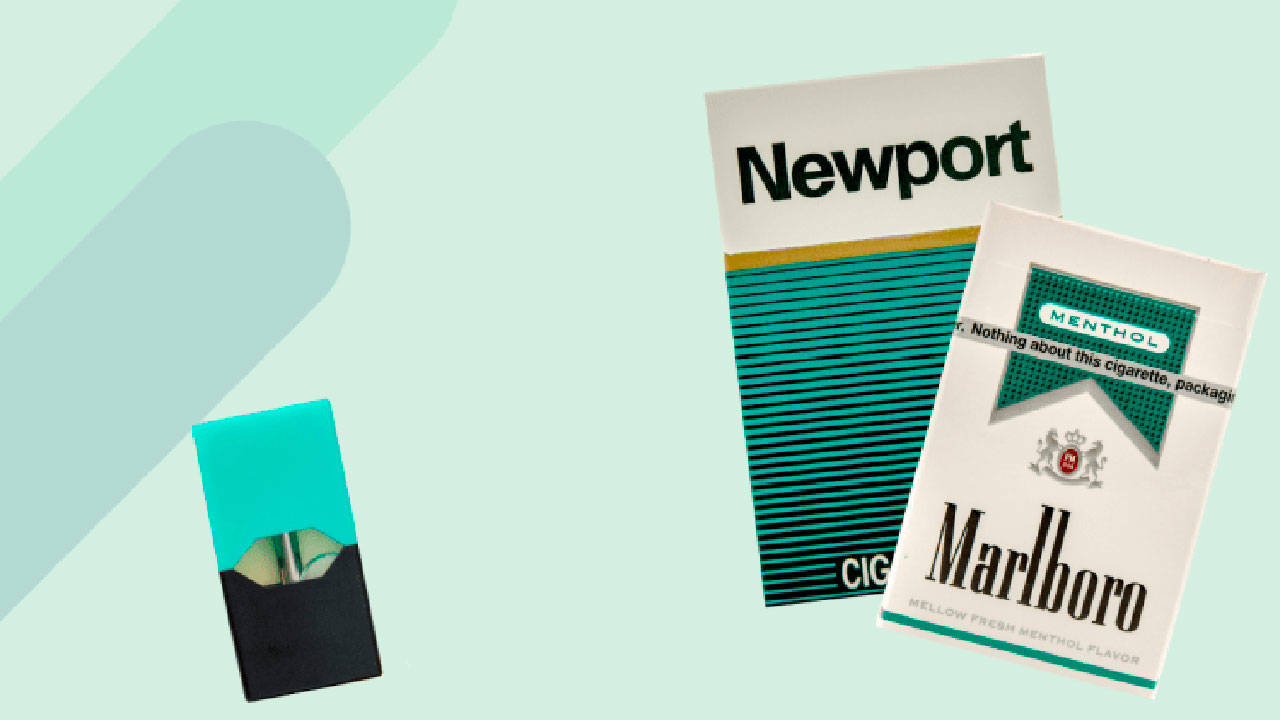The following was written by Public Health Insider, the official blog for Public Health — Seattle & King County:
“Just a spoonful of menthol makes the poison go down.”
These words from a video called “Beautiful Lies, Ugly Truth” by the Center for Multicultural Health’s (CMCH) Speaking Truth and New Direction (STAND) youth group describe the reality that many youth face: For more than 60 years, the tobacco industry has deliberately targeted communities of color, especially Black communities and youth, with marketing for menthol cigarettes.
“Big Tobacco’s racist marketing strategies continue today, including appropriating Black culture and selling at reduced prices in lower income and Black neighborhoods,” states a recent report from the Campaign for Tobacco Free Kids. The report finds that the predatory marketing of menthol products has led to Black Americans suffering disproportionately from tobacco use.
Communities in King County have also felt this impact, including many of the youth involved in STAND who have had family members pass away from tobacco-related disease after years of smoking menthol cigarettes.
Despite research outlining the dangers of menthol cigarettes, menthol has largely been excluded from tobacco flavor bans throughout the United States. Further, the U.S. Food and Drug Administration (FDA) has failed to take action on menthol cigarettes while all other flavored cigarettes have been federally banned since 2009.
That may change any day, as the FDA faces an April 29, 2021 deadline to respond to a citizen petition that was submitted back in 2013 asking the FDA to prohibit the sale of menthol cigarettes.
“Menthol has plagued the community for so long,” Kerry Holifield, STAND’s program coordinator says of the potential to ban menthol products. “Every single one of our STAND youth leaders had a grandparent who smoked. Everyone had a grandparent who smoked menthol. It’s [menthol’s] inclusion within the community is obvious and it is high-time that we rid the community of that burden.”
LOCAL YOUTH VOICES DRIVING FOR CHANGE
Holifield and co-worker Jalen Howard lead STAND as CMCH staff members. The group is dedicated to preventing tobacco and other drug use among youth and does so by speaking directly to their peers and involving them in the conversation. Holifield and Howard describe their roles as the engine while the youth steer the ship: “They receive feedback from the community that we can use to build more tailored social media and prevention campaigns and bring feedback to legislators.”
These two activities are priorities for STAND: create content that resonates widely with Washington youth (like the “Beautiful Lies, Ugly Truth” video), and engage community and legislators in conversations about tobacco, especially when new bills are proposed.
This year, House Bill 1345 was introduced during the Washington State legislative session, which originally included a ban on menthol and other flavors in tobacco products. Three youth involved in STAND participated in the public hearing, sharing that each had lost a grandparent from years of smoking menthol cigarettes.
“It’s important for community to be a part of the conversation,” Howard states. In addition to sharing personal experiences, community input informs legislators of some of the real impacts communities may face from potential legislation.
There are some that think that a menthol flavor ban may unfairly target Black communities. However, many Black organizations and a growing number of national health organizations believe a menthol ban is critical to improving the health of the Black community. STAND acknowledges that, if the bill places accountability on retailers, a menthol ban will have a positive impact on the communities they serve.
IT’S TIME TO END MENTHOL FLAVORED TOBACCO
However, House Bill 1345 was unsuccessful this year, leaving a statewide flavor ban off the table for now. To date, only two states (Massachusetts and California) have enacted menthol cigarette bans and a few others (New York, New Jersey, and Rhode Island) have banned flavored e-cigarettes including menthol flavors.
With organizations like STAND, numerous national health agencies putting pressure on the FDA, and other grassroots efforts, we may soon see menthol included in flavor bans nationwide.
STAND continues to share information and create new content that reaches their peers, including a new podcast that will discuss menthol in their communities and address the misconceptions around vaping and marijuana. Without a flavor ban, educating the community is one way to prevent use and build support.
The upcoming FDA response deadline on April 29 may reveal how the organization plans to approach menthol products moving forward, but it will likely only be a start.
Menthol flavor bans have the potential to greatly impact the health and lives of Black individuals and communities. Restrictions on flavors are one way to combat the racist marketing tactics that the tobacco industry has employed for more than 60 years. The time for the tobacco industry’s racist and decades-old use of menthol to attract and addict the Black community needs to come to an end and strong, local youth voices are helping to do just that.


